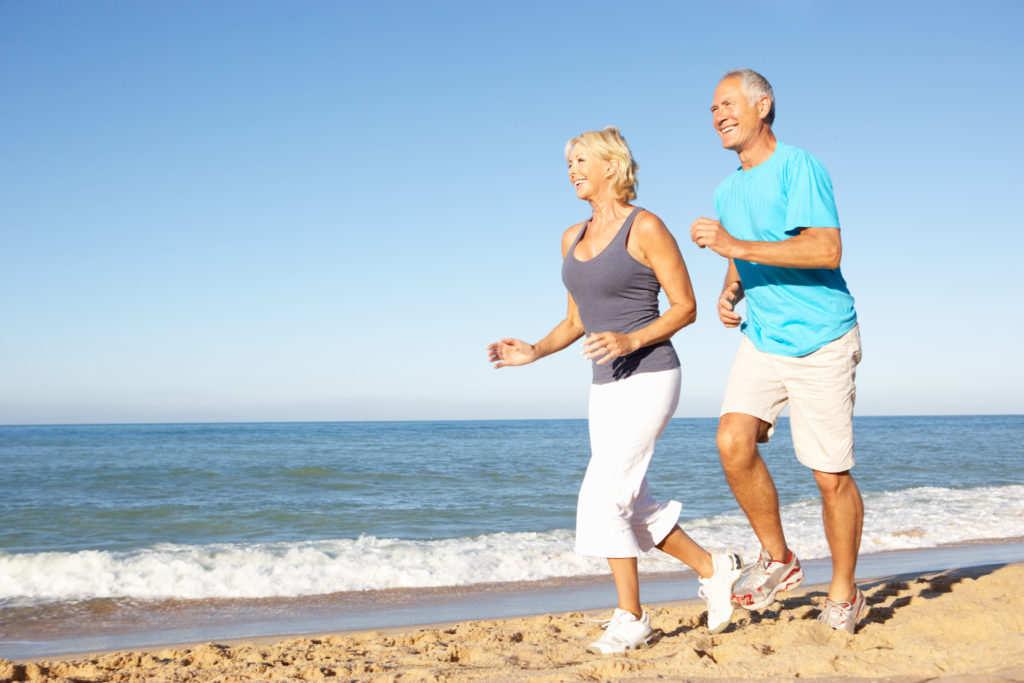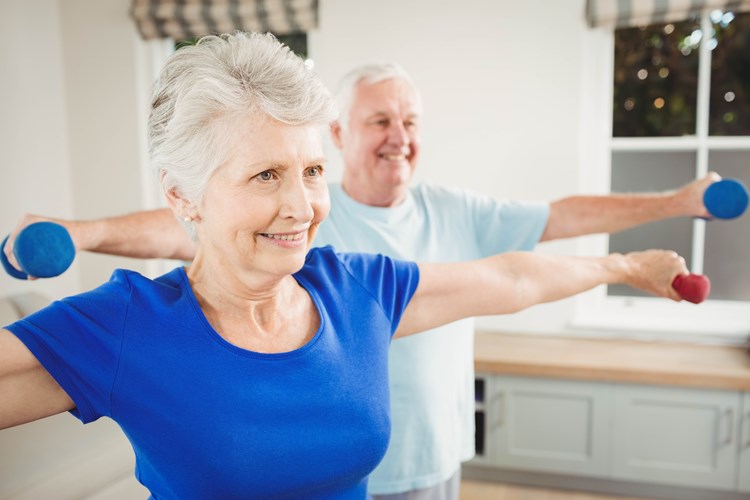
Exercise is beneficial for elderly people in many ways. It can help to improve strength and balance and can reduce the risk of falls. Exercise can also help to improve mental health, and can reduce the risk of developing dementia. As we age, our bodies go through many changes. We may not be as strong or as agile as we once were, but that doesn’t mean we can’t stay active and enjoy the benefits of exercise.
Exercise has many benefits for the elderly, including improved mental health, increased bone density, lowered blood pressure, and improved balance and coordination. Regular exercise can also help to reduce the risk of falls, which is a leading cause of injury in the elderly. The best part about exercise is that it’s never too late to start.
No matter your age, you can reap the benefits of a regular exercise routine. So get out there and get moving!

Credit: www.agingcare.com
How Does Exercise Benefit Elderly People
Exercise has many benefits for people of all ages, but it can be especially beneficial for older adults. Regular exercise can help older adults stay independent and improve their quality of life. There are many ways that exercise can benefit older adults.
Exercise can help to:
- Improve strength and muscle mass.
- Increase bone density.
- Improve balance and coordination.
- Reduce the risk of falls.
- Improve mental health.
Regular exercise can also help to reduce the risk of chronic diseases such as heart disease, stroke, type 2 diabetes, and some forms of cancer. For older adults who are already struggling with chronic health problems, exercise can help to improve symptoms and manage the condition. Exercise can also help to reduce the risk of hospitalization and nursing home placement.
In short, exercise can help older adults to stay active, independent, and healthy. If you’re an older adult, talk to your doctor about what type and amount of exercise is right for you.
What Are Some of The Benefits of Exercise for Elderly People
As we age, it’s important to keep active and exercise regularly to maintain our muscle mass, flexibility, balance, and overall fitness. Doing so can help prevent age-related conditions such as obesity, heart disease, stroke, osteoporosis, type 2 diabetes, and cancer. There are many benefits of exercise for the elderly, both mental and physical.
Exercise can help improve cognitive function, memory, and concentration. It can also help reduce the risk of developing dementia. Physically, exercise can help to reduce the risk of falls by improving balance and muscle strength.
It can also help to reduce pain, improve joint function and mobility, and increase bone density. Regular exercise can also help to improve mental health, reduce stress and anxiety, and improve mood and sleep quality.
What Are Some of The Best Exercises for Elderly People
The best exercises for elderly people include walking, swimming, and Tai Chi. Walking is a great way to get some exercise and can be done almost anywhere.
Swimming is a great way to get some low-impact exercise. Tai Chi is a great way to improve balance and flexibility.
How Often Should Elderly People Exercise
As we age, it’s important to keep active and exercise regularly to maintain our overall health and wellbeing. But how often should elderly people exercise? The Department of Health and Human Services recommends that people aged 65 and over should do at least 150 minutes of moderate-intensity aerobic activity every week, or 75 minutes of vigorous-intensity aerobic activity.
This should be spread out over at least three days, with no more than two consecutive days without exercise. Moderate intensity activity is defined as anything that gets your heart rate up and makes you breathe faster and deeper than normal. This could include brisk walking, swimming, dancing, or gardening.
Vigorous intensity activity is anything that gets your heart rate up and makes you breathe even faster and deeper than moderate-intensity activity. This could include jogging, running, or playing tennis. If you’re not used to exercising, it’s important to start slowly and build up your activity levels gradually.
You may want to start with just 10 minutes of exercise a day, and then increase this by 10 minutes every week until you reach the recommended 150 minutes. If you’re struggling to meet the recommended 150 minutes of exercise a week, don’t worry – any amount of exercise is better than none at all. Even just doing a few minutes of exercise a day can have health benefits.
What Are Some of The Risks of Exercise for Elderly People
The bodies of elderly people become less able to handle the stresses of exercise. This can lead to a greater risk of injury, particularly for those who are not used to being active. Several things can contribute to an increased risk of injury with exercise.
First, our bones and muscles become weaker as we age. This can make it more difficult to maintain balance and control when participating in activities.
Second, our reflexes tend to slow down as we get older. This can make it more difficult to react to sudden changes in our environment, such as tripping on a curb.
Third, our joints become less flexible as we age. This can make it easier to injure ourselves if we attempt to exercise beyond our current range of motion.
It is important to consult with a doctor before beginning any new exercise regimen, especially if you are over the age of 65. They can help you develop a plan that is appropriate for your current fitness level and health condition. They can also guide you on how to modify exercises to reduce your risk of injury.
Wendy Suzuki: The brain-changing benefits of exercise | TED
Four Reasons Why It Is Important for An Elderly to Rest And Exercise
There are many benefits to regular exercise for seniors. It can help improve mental and physical health, and also reduce the risk of developing chronic diseases. However, it is also important for seniors to get enough rest.
Here are five reasons why rest is important for seniors:
1. Rest helps the body recover from exercise. When we exercise, our muscles and tissues are damaged. This is a natural process that is necessary for muscle growth and repair. However, this damage can only be repaired when the body is at rest. Therefore, seniors need to make sure they get enough rest in order to fully benefit from their exercise routine.
2. Rest helps improve mental health. Exercise can help improve mental health, but only if seniors get enough rest. During sleep, the brain is able to consolidate memories and process information. This is essential for seniors who want to maintain their cognitive abilities.
3. Rest can help prevent injuries. If seniors don’t get enough rest, they are more likely to experience injuries This is because muscles and tissues need time to recover from the stress of exercise. When the body is tired, it is more likely to experience strains, sprains, and other injuries.
4. Rest can help improve energy levels. Although exercise can improve energy levels, seniors will only reap these benefits if they get enough rest.
Conclusion
Exercise is beneficial for elderly people for a number of reasons. It can help improve balance and coordination, which can prevent falls. It can also help increase strength and flexibility, which can help with mobility and daily activities. Exercise can also help improve mental health, and can help reduce the risk of dementia.






